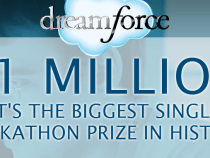Hi there!
Here's the latest feed from TechCrunch.

Add feeds@feed2email.net to your contact list to make sure you receive all your emails
Make sure to visit feed2email.net to get more feeds sent to your inbox.
To find out which feeds you are subscribed to, or to get further help, just reply to this email.
Spotify Gets In Tune With Musicians With The New, B2B Spotify Artists Website; Has Paid Out $500M+ To Rightsholders So Far In 2013
Dec 03, 10:03AM
 Spotify recently confirmed a whopping $250 million expansion round of funding. But with a lot of public heat from high profile musicians questioning whether the music streaming platform is a boom or bust for business, today Spotify is launching a new service, and putting out updated news on the rise in rightsholder payouts, that it hopes will demonstrate that it's not just growing for its own gain.
Spotify recently confirmed a whopping $250 million expansion round of funding. But with a lot of public heat from high profile musicians questioning whether the music streaming platform is a boom or bust for business, today Spotify is launching a new service, and putting out updated news on the rise in rightsholder payouts, that it hopes will demonstrate that it's not just growing for its own gain. Huawei's Problems In The U.S. Point To Branding Challenges For Other Chinese Tech Companies
Dec 03, 9:53AM
 After two years of dealing with espionage accusations, Huawei CEO Ren Zhengfei recently told French publication Les Echos that he wants the telecom equipment manufacturer to pull out of the U.S. market. Huawei's problems stem in large part from Ren's past association with the People's Liberation Army, but they also serve as a warning about potential marketing issues for other Chinese companies that want to break into the U.S.
After two years of dealing with espionage accusations, Huawei CEO Ren Zhengfei recently told French publication Les Echos that he wants the telecom equipment manufacturer to pull out of the U.S. market. Huawei's problems stem in large part from Ren's past association with the People's Liberation Army, but they also serve as a warning about potential marketing issues for other Chinese companies that want to break into the U.S.Mallzee Is A Tinder-Esque Shopping App That Lets Your Friends Play Fashion Police
Dec 03, 9:30AM
 Swipe right if you like. Swipe left if you don't. Mallzee, a 'personal shopper' for iOS, has a Tinder-esque UI, underpinned by its own recommendation engine, to make clothes shopping simple, efficient and fun. But it also has a clever social twist. The app lets you share the item you intend to buy with friends. If the consensus is a thumbs-down, Mallzee will actually prohibit you from making a purchase -- the buy button becomes disabled -- helping to avoid any potential fashion faux pas.
Swipe right if you like. Swipe left if you don't. Mallzee, a 'personal shopper' for iOS, has a Tinder-esque UI, underpinned by its own recommendation engine, to make clothes shopping simple, efficient and fun. But it also has a clever social twist. The app lets you share the item you intend to buy with friends. If the consensus is a thumbs-down, Mallzee will actually prohibit you from making a purchase -- the buy button becomes disabled -- helping to avoid any potential fashion faux pas.Blackhawk Network Picks Up Gift Card Startup, Retailo, To Bolster Its Reach In Europe
Dec 03, 8:53AM
Blackhawk Network, the subsidiary of Safeway that IPOed back in April and which offers prepaid and payment products such as gift cards in North America and elsewhere, has announced it has acquired European gift card distributor startup, Retailo. Retailo was founded back in 2008, and its investors include Wellington Partners, Endeavour Vision, Seventure Partners and High-Tech Gründerfonds. The price of the acquisition, which Blackhawk said was funded with “cash from operations”, has not been disclosed - but TechCrunch understands it is in the region of €50 million/$68 million. Retailo's management team will be remaining, post-acquisition. The startup, which will continue to operate from its headquarters in Cologne, Germany, but now as a business unit of Blackhawk, has deals to distribute gift cards at more than 40,000 points of sale In Germany, Austria and Switzerland - for brands including Amazon.de, Ikea, C&A and Zalando. As well as distributing physical gift cards, via stationary trade outlets (such as supermarkets and gas stations), Retailo has an online distribution network for voucher codes (via SMS, email, social media etc) and also social gifting offerings including a b2b business. Blackhawk Network's gift card business has largely been focused on North America to date, although it has extended internationally - including to the U.K., France, the Netherlands and the Nordics. Buying Retailo bolsters that international presence by acquiring the distribution network it has built up. Blackhawk said the acquisition increases its EMEA distribution network to around 70,000 points of sale, as well as expanding its digital network offerings. "Blackhawk is focused on international growth, and the acquisition of Retailo in Germany, Europe's biggest economy and a country where gift cards are becoming increasingly popular with consumers, is a clear indication of our ability to execute strategically to expedite that growth," said Bill Tauscher, Blackhawk Network CEO, in a statement on the acquisition. "Christian Lindner and his team at Retailo have built an impressive business, and the synergies between our companies in terms of retail best practices and digital services – to name just a few – have us very excited about the opportunities ahead," he added. Blackhawk will of course face the challenge of maintaining Retailo's network, post-acquisition, and the relationships with the European gift card brands it built up. Back in 2011, Blackhawk picked up a 1.5-year-old startup called Cardpool, a Y-combinator-backed gift card marketplace. But, the Safeway subsidiary hasn't generally been very acquisitive. This year's IPO has apparently given it a mindset (and warchest) to tackle larger acquisitions. Competitors to Blackhawk Network include InComm and ePay.
Index Ventures Leads €10M Series C In Online Plus-Size Fashion Retailer, Navabi
Dec 03, 6:00AM
 Index Ventures has led a €10 million Series C round in navabi, an online retailer for plus-size fashion. Existing investors, which include Seventure Partners and Dumont Venture, also participated in the round. The German startup was founded back in 2007, and has raised some €13.5 million to date. Navabi sells clothes from a range of designer fashion brands - including Anna Scholz, Manon Baptiste and Roberto Cavalli White - as well as its own label clothing, in sizes 12 to 28. This portion of the fashion market is apparently an expanding one as, presumably, more waistlines expand. Plus-size fashion has also been underserved by traditional retailers and brands, fuelling demand for navabi's premium plus-size apparel approach. The startup cites Mintel market research that suggests the addressable market is already a huge one, with an estimated 50%+ of the female population in Europe wearing plus-sized clothing. But more growth is forecast, with the segment predicted to grow faster than traditional apparel sales. Mintel is forecasting the U.K. market alone will grow to nearly £6 billion by 2015, up from £3.81 billion in 2008. Navabi said the new funding will be used to maintain its “rapid growth rate” in Germany and to accelerate growth in the international markets it operates in - with particular focus (outside of its home market) planned for the U.K., U.S. and France. Currently around a third (30%) of its €30 million revenue comes from the U.K. and the U.S. It added that its turnover is “more than doubling” year on year. It is also planning to use the funding to push into a number of additional international markets in the next few years, and to “explore” other fashion categories, i.e. in addition to premium apparel, that might be of interest to its plus size customers. Commenting on the funding round in a statement, Dominique Vidal, partner at Index, said: “We are excited to partner with navabi. They have built a very desirable loyal customer base. They are very well positioned to becoming the leader in this large underserved market, building an inspirational and aspirational brand in Europe and beyond.”
Index Ventures has led a €10 million Series C round in navabi, an online retailer for plus-size fashion. Existing investors, which include Seventure Partners and Dumont Venture, also participated in the round. The German startup was founded back in 2007, and has raised some €13.5 million to date. Navabi sells clothes from a range of designer fashion brands - including Anna Scholz, Manon Baptiste and Roberto Cavalli White - as well as its own label clothing, in sizes 12 to 28. This portion of the fashion market is apparently an expanding one as, presumably, more waistlines expand. Plus-size fashion has also been underserved by traditional retailers and brands, fuelling demand for navabi's premium plus-size apparel approach. The startup cites Mintel market research that suggests the addressable market is already a huge one, with an estimated 50%+ of the female population in Europe wearing plus-sized clothing. But more growth is forecast, with the segment predicted to grow faster than traditional apparel sales. Mintel is forecasting the U.K. market alone will grow to nearly £6 billion by 2015, up from £3.81 billion in 2008. Navabi said the new funding will be used to maintain its “rapid growth rate” in Germany and to accelerate growth in the international markets it operates in - with particular focus (outside of its home market) planned for the U.K., U.S. and France. Currently around a third (30%) of its €30 million revenue comes from the U.K. and the U.S. It added that its turnover is “more than doubling” year on year. It is also planning to use the funding to push into a number of additional international markets in the next few years, and to “explore” other fashion categories, i.e. in addition to premium apparel, that might be of interest to its plus size customers. Commenting on the funding round in a statement, Dominique Vidal, partner at Index, said: “We are excited to partner with navabi. They have built a very desirable loyal customer base. They are very well positioned to becoming the leader in this large underserved market, building an inspirational and aspirational brand in Europe and beyond.”Google's Compute Engine Hits General Availability, Drops Instance Prices 10%, Adds 16-Core Instances & Docker Support
Dec 03, 5:01AM
 Google today announced the general availability of the Google Compute Engine, the cloud computing platform it launched in the summer of 2012. As part of the GA launch, Google also announced expanded support for new operating systems, a 10 percent drop in pricing for standard instances, new 16-core instances for applications that need a lot of computation power and a new logo to update its branding. Compute Engine is the cloud platform Google has developed on top of the vast infrastructure it manages to run its own search engine and its other properties. The company offers 24/7 support and promises a 99.95 percent update in its SLA. Besides lowering the price of all standard instances by 10 percent, Google is also dropping the price of persistent disk storage by 60 percent, as well as I/O charges for it “so that you get a predictable, low price for your block storage device.” The company also says that its largest persistent disk volumes now have up to 700 percent higher I/O capability. Until now, Compute Engine supported Debian and CentOS, customized with a Google-built kernel. Starting today, developers will also be able to use any out-of-the-box Linux distribution, including SELinux and CoreOS, the Y Combinator alum with the OS designed to mimic Google's cloud infrastructure. The company is also announcing official support for SUSE, FreeBSD and Red Hat Enterprise Linux (currently in limited preview). As part of this update, Google is also announcing support for Docker, the increasingly popular tool for creating virtual containers from any application. With Docker, developers can build and test an application on their laptops and then move this container to a production server for deployment. The company submitted Docker as an open-source project last month. Docker fits with CoreOS, a project that was started by Alex Polvi, the founder of Cloudkick, which he later sold to Rackspace. Docker actually comes packaged with CoreOS so applications can be moved between different services. That's important as it offers ways for developers to easily use multiple cloud services without locking themselves into a single vendor. For developers who need a more computational power than Google can offer so far, the company today launched three new 16-core instance types (until now, the maximum number of virtual cores on Compute Engine was 8). Google expects developers will use these to perform tasks that “range from silicon simulation to running high-scale NoSQL databases.” Overall, Google's range of
Google today announced the general availability of the Google Compute Engine, the cloud computing platform it launched in the summer of 2012. As part of the GA launch, Google also announced expanded support for new operating systems, a 10 percent drop in pricing for standard instances, new 16-core instances for applications that need a lot of computation power and a new logo to update its branding. Compute Engine is the cloud platform Google has developed on top of the vast infrastructure it manages to run its own search engine and its other properties. The company offers 24/7 support and promises a 99.95 percent update in its SLA. Besides lowering the price of all standard instances by 10 percent, Google is also dropping the price of persistent disk storage by 60 percent, as well as I/O charges for it “so that you get a predictable, low price for your block storage device.” The company also says that its largest persistent disk volumes now have up to 700 percent higher I/O capability. Until now, Compute Engine supported Debian and CentOS, customized with a Google-built kernel. Starting today, developers will also be able to use any out-of-the-box Linux distribution, including SELinux and CoreOS, the Y Combinator alum with the OS designed to mimic Google's cloud infrastructure. The company is also announcing official support for SUSE, FreeBSD and Red Hat Enterprise Linux (currently in limited preview). As part of this update, Google is also announcing support for Docker, the increasingly popular tool for creating virtual containers from any application. With Docker, developers can build and test an application on their laptops and then move this container to a production server for deployment. The company submitted Docker as an open-source project last month. Docker fits with CoreOS, a project that was started by Alex Polvi, the founder of Cloudkick, which he later sold to Rackspace. Docker actually comes packaged with CoreOS so applications can be moved between different services. That's important as it offers ways for developers to easily use multiple cloud services without locking themselves into a single vendor. For developers who need a more computational power than Google can offer so far, the company today launched three new 16-core instance types (until now, the maximum number of virtual cores on Compute Engine was 8). Google expects developers will use these to perform tasks that “range from silicon simulation to running high-scale NoSQL databases.” Overall, Google's range ofDrop 'Til You Shop Harnesses Our Burning Desire To Nab A Deal To Turn Over Unsold Goods
Dec 03, 3:49AM
 Compulsive shoppers, meet your worst enemy. It's not Cyber Monday.
Compulsive shoppers, meet your worst enemy. It's not Cyber Monday. Eleven James Is A New Startup That Lets You Rent Your Wrist Wear
Dec 03, 12:49AM
 Why should the ladies have all the fun? Like Le Tote and Rent The Runway, a new start-up, Eleven James, is offering something men may find alluring: the opportunity to wear a cool new watch every few months for a monthly fee.
Why should the ladies have all the fun? Like Le Tote and Rent The Runway, a new start-up, Eleven James, is offering something men may find alluring: the opportunity to wear a cool new watch every few months for a monthly fee. Man, Machine And How They Relate To APIs
Dec 03, 12:22AM
 The interactions between humans and machines creates a new set of relationships that we are just beginning to understand. We are becoming more machine-like, which changes the way we co-exist with each other. Data, once impeded, now flows in countless ways between people, machines and the infinite abstractions that force us to re-examine everything in our lives. For example, our phones can open doors and give us directions. Roads and bridges are as much nodes for transmitting data as a server cluster, a door handle or even a human body or animal.
The interactions between humans and machines creates a new set of relationships that we are just beginning to understand. We are becoming more machine-like, which changes the way we co-exist with each other. Data, once impeded, now flows in countless ways between people, machines and the infinite abstractions that force us to re-examine everything in our lives. For example, our phones can open doors and give us directions. Roads and bridges are as much nodes for transmitting data as a server cluster, a door handle or even a human body or animal.The Chernin Group Nabs A Majority Stake In Anime Video Distributor Crunchyroll
Dec 03, 12:20AM
The Chernin Group confirmed today that it has acquired a majority stake in anime video distribution company Crunchyroll. The deal was first reported by AllThingsD in October and gives Peter Chernin's investment company one of the largest streaming sites out there, with viewers in more than 160 countries worldwide. Like Hulu, which Chernin had sought to invest in earlier this year, Crunchyroll has both a free, ad-supported video offering, as well as a subscription video-on-demand offering for anime fans. It's available online and on a wide range of devices, including phones, tablets, game consoles, and streaming video boxes like Apple TV and Roku. In addition to video, Crunchyroll also provides e-commerce, news, and community features for viewers. With the investment by Chernin, the company is expected to dabble into new channels outside of its core anime vertical.
Rentals Delivered By Drone Could Make Ownership Obsolete
Dec 02, 11:53PM
 Why buy something when you could rent it, have it instantly delivered when you need it, and taken away when you're done? While Amazon's unveiling of its Prime Air drone-powered delivery service could make buying more efficient, it is drone pick-up that could make so we don't need to buy things at all.
Why buy something when you could rent it, have it instantly delivered when you need it, and taken away when you're done? While Amazon's unveiling of its Prime Air drone-powered delivery service could make buying more efficient, it is drone pick-up that could make so we don't need to buy things at all.PC Market Will Contract 10.1% In 2013, 3.8% In 2014, And Bottom Out North Of 300M Yearly Units
Dec 02, 11:32PM
 Today IDC released its forecasts for the global PC market, estimating that 2013 sales will fall 10.1 percent, which is a slightly higher than the 9.7 percent the firm had previously anticipated. The PC market has had a year of historically bad proportions. That in mind, IDC does expect PCs to fare better in 2014, with a contraction of 3.8 estimated. That's the bottom of the curve, however, as IDC expects sales rates to become "slightly positive in the longer term." Following its predictions, PC sales should not fall below the 300-million mark on a yearly basis.
Today IDC released its forecasts for the global PC market, estimating that 2013 sales will fall 10.1 percent, which is a slightly higher than the 9.7 percent the firm had previously anticipated. The PC market has had a year of historically bad proportions. That in mind, IDC does expect PCs to fare better in 2014, with a contraction of 3.8 estimated. That's the bottom of the curve, however, as IDC expects sales rates to become "slightly positive in the longer term." Following its predictions, PC sales should not fall below the 300-million mark on a yearly basis.E La Carte Scores Deal With Applebee's, Bringing 100,000 Tableside Tablets To All U.S. Locations By Year-End 2014
Dec 02, 10:36PM
 Applebee's, the largest casual dining chain in the U.S., has signed a deal with restaurant tablet hardware and software provider E la Carte, which will see it introducing 100,000 tableside tablets to its locations starting in 2014, with the rollout completed by year-end. This represents one of the largest tableside tablet rollouts to date in any private enterprise, as Applebee's serves around a million guests per day.
Applebee's, the largest casual dining chain in the U.S., has signed a deal with restaurant tablet hardware and software provider E la Carte, which will see it introducing 100,000 tableside tablets to its locations starting in 2014, with the rollout completed by year-end. This represents one of the largest tableside tablet rollouts to date in any private enterprise, as Applebee's serves around a million guests per day.Facebook's Feed Adds More Links And "Related Articles" To Battle News Discovery Apps
Dec 02, 10:21PM
 Facebook is determined to be your top content discovery destination, so it's making several tweaks to its News Feed, including showing more links to articles, displaying a "related articles" box when you click those links, and bumping old links back to the top of the feed when friends comment on them. The goal is to make Facebook the hub for news sharing and discussion.
Facebook is determined to be your top content discovery destination, so it's making several tweaks to its News Feed, including showing more links to articles, displaying a "related articles" box when you click those links, and bumping old links back to the top of the feed when friends comment on them. The goal is to make Facebook the hub for news sharing and discussion.Apple Buys Topsy For Price Reportedly North Of $200M, Could Use Social Signals To Bolster Siri, App Store Relevance
Dec 02, 10:05PM
 Apple has purchased social analytics firm Topsy, which focuses on parsing data from Twitter, reports The Wall Street Journal. The deal was apparently worth ‘more than $200M' according to the publication. Topsy is one of several firms that have been focused on gathering and parsing data from Twitter's platform. It allows customers to tap into a store of over 425 billion tweets from 2006 onwards to sniff out trends. Topsy competitors in the Twitter data reselling game include DataSift and Gnip, but its user-facing tools, including a topic and trends search engine, have made it one of the more popular options for those looking to make sense of the stuff people are tweeting about. Given that Apple is a Twitter partner already, and hosts login and posting features for the social network on its iOS and OS X platforms, this seems like a confusing deal if all that it's after is the Twitter data firehose. It seems more likely that Topsy has technology or engineers (read: acqui-hire) that can parse trends in a way that Apple wants to incorporate into one of its products. If I had to hazard a guess, this might be related to Apple building out the relevancy engine of its App and iTunes Stores. Adding social signals to the search algorithms of its stores could help to improve the relevance of search results and help Apple surface apps that are hotter and more interesting to users. Tracking app trends across social networks would allow them to fine tune categories and collections of apps, and surface apps that are gaining steam more quickly. Pulling the thread out a bit further, it's possible that Apple could even use the data from your Twitter feeds to recommend apps on a more personal basis, rather than ‘generically' to everyone. Apple has done little of this kind of personalized recommendation work to this point, but there's always a first time for everything. The WSJ article points to iTunes Radio ads and the iAd platform as possible beneficiaries of the Topsy engine, too. Apple could theoretically use social data to help advertisers display ads to more relevant viewers. This would boost revenue and relevance across Apple's ad platforms, which haven't been incredibly robust so far. Apple purchased the app search company Chomp last year, but ended up using mostly its ‘card-like' interface, not what some viewed to be its superior discovery model.
Apple has purchased social analytics firm Topsy, which focuses on parsing data from Twitter, reports The Wall Street Journal. The deal was apparently worth ‘more than $200M' according to the publication. Topsy is one of several firms that have been focused on gathering and parsing data from Twitter's platform. It allows customers to tap into a store of over 425 billion tweets from 2006 onwards to sniff out trends. Topsy competitors in the Twitter data reselling game include DataSift and Gnip, but its user-facing tools, including a topic and trends search engine, have made it one of the more popular options for those looking to make sense of the stuff people are tweeting about. Given that Apple is a Twitter partner already, and hosts login and posting features for the social network on its iOS and OS X platforms, this seems like a confusing deal if all that it's after is the Twitter data firehose. It seems more likely that Topsy has technology or engineers (read: acqui-hire) that can parse trends in a way that Apple wants to incorporate into one of its products. If I had to hazard a guess, this might be related to Apple building out the relevancy engine of its App and iTunes Stores. Adding social signals to the search algorithms of its stores could help to improve the relevance of search results and help Apple surface apps that are hotter and more interesting to users. Tracking app trends across social networks would allow them to fine tune categories and collections of apps, and surface apps that are gaining steam more quickly. Pulling the thread out a bit further, it's possible that Apple could even use the data from your Twitter feeds to recommend apps on a more personal basis, rather than ‘generically' to everyone. Apple has done little of this kind of personalized recommendation work to this point, but there's always a first time for everything. The WSJ article points to iTunes Radio ads and the iAd platform as possible beneficiaries of the Topsy engine, too. Apple could theoretically use social data to help advertisers display ads to more relevant viewers. This would boost revenue and relevance across Apple's ad platforms, which haven't been incredibly robust so far. Apple purchased the app search company Chomp last year, but ended up using mostly its ‘card-like' interface, not what some viewed to be its superior discovery model.Salesforce Says Hackathon Winner Didn't Cheat But Declares Tie, Gives Two Finalists $1M Each
Dec 02, 9:34PM
 Salesforce has responded to cries of foul play in its $1 million hackathon by announcing that while winning team Upshot didn't cheat, judges weren't given sufficient information to select a winner so it's giving $1 million to each of the top two finalists, Upshot and Healthcare.love.
Salesforce has responded to cries of foul play in its $1 million hackathon by announcing that while winning team Upshot didn't cheat, judges weren't given sufficient information to select a winner so it's giving $1 million to each of the top two finalists, Upshot and Healthcare.love.Microsoft Rolls Out Student Advantage, Giving Students Free Access To Its Office Suite
Dec 02, 8:04PM
 Today Microsoft flipped the switch on Student Advantage, a program, announced in October, that extends the availability of Office to students of educational institutions that pay for Office 365 for their staff and faculty. According to Microsoft, 35,000 educational institutions are eligible for Student Advantage, which provides access to the ProPlus SKU of Office 365, again provided that its paid staff are current users of Office 365 ProPlus or Office Professional Plus. Office 365 ProPlus includes Access and Lync, making it a robust set of tools. Microsoft took a dig at Google in its announcement, stating that “[e]ven Google's own job postings require competency with Microsoft Office tools.” What this means in practice is that Microsoft is lowering the marginal cost of Office for students to zero, while guaranteeing itself revenue through contracts with universities and the like. Microsoft cannot afford to cede mind and market share to Google, which provides a free Office competitor, and it must preserve its revenue from the product, which is a key profit source. Office 365 ProPlus generally costs around $12 per month, per user, so the amount of ‘free' software that Microsoft will provide is non-trivial. To protect Office from low, or zero-cost competitors, it's probably sensible for it to sacrifice some revenue opportunity to keep up its primacy in the productivity market. Top Image Credit: Flickr
Today Microsoft flipped the switch on Student Advantage, a program, announced in October, that extends the availability of Office to students of educational institutions that pay for Office 365 for their staff and faculty. According to Microsoft, 35,000 educational institutions are eligible for Student Advantage, which provides access to the ProPlus SKU of Office 365, again provided that its paid staff are current users of Office 365 ProPlus or Office Professional Plus. Office 365 ProPlus includes Access and Lync, making it a robust set of tools. Microsoft took a dig at Google in its announcement, stating that “[e]ven Google's own job postings require competency with Microsoft Office tools.” What this means in practice is that Microsoft is lowering the marginal cost of Office for students to zero, while guaranteeing itself revenue through contracts with universities and the like. Microsoft cannot afford to cede mind and market share to Google, which provides a free Office competitor, and it must preserve its revenue from the product, which is a key profit source. Office 365 ProPlus generally costs around $12 per month, per user, so the amount of ‘free' software that Microsoft will provide is non-trivial. To protect Office from low, or zero-cost competitors, it's probably sensible for it to sacrifice some revenue opportunity to keep up its primacy in the productivity market. Top Image Credit: FlickrAppHero Acquired By Mobile App Publishing Firm Fuse Powered, Will Turn Its Attention To Ads
Dec 02, 7:51PM
 App discovery startup AppHero has been acquired by fellow Toronto-based company Fuse Powered, the company announced today, in a deal that will see the entire AppHero team including 19-year old founder Jordan Satok join Fuse Powered and develop its products for app publishing, marketing and distribution. AppHero, founded in 2011, was a pure play discovery network that developed sophisticated algorithms for suggesting mobile software to users, but now it's crossing the line into territory it stayed specifically out of when it was operating under that guise: paid placement.
App discovery startup AppHero has been acquired by fellow Toronto-based company Fuse Powered, the company announced today, in a deal that will see the entire AppHero team including 19-year old founder Jordan Satok join Fuse Powered and develop its products for app publishing, marketing and distribution. AppHero, founded in 2011, was a pure play discovery network that developed sophisticated algorithms for suggesting mobile software to users, but now it's crossing the line into territory it stayed specifically out of when it was operating under that guise: paid placement. Healthcare.gov: Mission Accomplished
Dec 02, 7:29PM
 Apparently, no President is above the temptation of propaganda. Yesterday, the White House released a much-anticipated report on the beleaguered insurance e-commerce website, heatlhcare.gov, proudly declaring that “we believe we have met the goal of having a system that will work smoothly for the vast majority of users.” Compared to its opening launch of October 1st, the website has gone from a 40% uptime to 95% and can manage 50,000 concurrent users (vs. the estimated 1,100). “The site is now stable and operating at its intended capacity with greatly improved performance,” according to new project lead, Jeffrey Zientz. Operating-as-intended is a curious sleight-of-hand. There's a few on-going issues. 1. We still don't know how many users can actually enroll without any problems. Health insurance companies issued a stern warning that healthcare.gov may still be transmitting false user information. So-called “834″ data is critical to verifying a consumer's identity and if they're eligible for discounts. In other words, we still don't know whether the “vast majority” of users can actually get covered by January 1st. 2. The progress report has graphs that brazenly obscure the truth, like this one below of “bug fixes”: The graph makes it look like the team has solved all the bugs, but how many more bugs are left to fix? If it's 10,000 bugs, then it'll look a lot different. Here's the one thing that this graph tell us: the communications team is still in charge at the White House. A technical team, concerned with giving the full picture, would never design a graph so obviously deceptive. The most serious problem isn't a malfunctioning website–which will get fixed soon enough–but that we don't know if the administration has learned any lessons. Savvy tech companies are excluded from health insurance e-commerce, the federal procurement process let a mediocre beltway-based developer design the failed site, and the entire project has been shrouded from public scrutiny. Other than the acknowledgement that procurement must be improved, President Obama has not given any specifics about how his administration will do things differently. I don't think a buggy website is comparable to a botched war. But, Obama could have ushered in a new standard of honesty for the office of the presidency. This failure has far reaching consequences. I am losing hope that there is change we can believe in. [Image Credit]
Apparently, no President is above the temptation of propaganda. Yesterday, the White House released a much-anticipated report on the beleaguered insurance e-commerce website, heatlhcare.gov, proudly declaring that “we believe we have met the goal of having a system that will work smoothly for the vast majority of users.” Compared to its opening launch of October 1st, the website has gone from a 40% uptime to 95% and can manage 50,000 concurrent users (vs. the estimated 1,100). “The site is now stable and operating at its intended capacity with greatly improved performance,” according to new project lead, Jeffrey Zientz. Operating-as-intended is a curious sleight-of-hand. There's a few on-going issues. 1. We still don't know how many users can actually enroll without any problems. Health insurance companies issued a stern warning that healthcare.gov may still be transmitting false user information. So-called “834″ data is critical to verifying a consumer's identity and if they're eligible for discounts. In other words, we still don't know whether the “vast majority” of users can actually get covered by January 1st. 2. The progress report has graphs that brazenly obscure the truth, like this one below of “bug fixes”: The graph makes it look like the team has solved all the bugs, but how many more bugs are left to fix? If it's 10,000 bugs, then it'll look a lot different. Here's the one thing that this graph tell us: the communications team is still in charge at the White House. A technical team, concerned with giving the full picture, would never design a graph so obviously deceptive. The most serious problem isn't a malfunctioning website–which will get fixed soon enough–but that we don't know if the administration has learned any lessons. Savvy tech companies are excluded from health insurance e-commerce, the federal procurement process let a mediocre beltway-based developer design the failed site, and the entire project has been shrouded from public scrutiny. Other than the acknowledgement that procurement must be improved, President Obama has not given any specifics about how his administration will do things differently. I don't think a buggy website is comparable to a botched war. But, Obama could have ushered in a new standard of honesty for the office of the presidency. This failure has far reaching consequences. I am losing hope that there is change we can believe in. [Image Credit]Supreme Court Refuses Consideration Of Amazon Sales Tax Case
Dec 02, 7:18PM
 The Supreme Court has rejected Amazon's calls to consider their case against New York State's sales tax on goods sold outside of its borders. By effectively upholding a New York Court's ruling, the Justices tacitly imply that they are fine paying sales tax on black body robes purchased online and shipped from outside the DC area. Ever since the 1992 Supreme Court case, Quill v. North Dakota, savvy Internet retailers could avoid sales tax if they didn't have a “substantial nexus” in the state where a customer lived. States lose an estimated $23 billion from online sales, according to the National Conference of State Legislators (hardly an unbiased group). New York State gets around that law by taxing an online company if they leverage local businesses, such as Amazon's affiliate program, to sell goods. The federal government isn't sitting out this game, either. Dueling bills in Congress seek to both ban and enact a federal sales tax. But, considering we have the most unproductive congress in history, Amazon may not have to worry about that law any time soon. Amazon officially supports a federal sales tax law if it creates a standardized set of rules across the entire country. [Image Credit: Flickr User sⓘndy°]
The Supreme Court has rejected Amazon's calls to consider their case against New York State's sales tax on goods sold outside of its borders. By effectively upholding a New York Court's ruling, the Justices tacitly imply that they are fine paying sales tax on black body robes purchased online and shipped from outside the DC area. Ever since the 1992 Supreme Court case, Quill v. North Dakota, savvy Internet retailers could avoid sales tax if they didn't have a “substantial nexus” in the state where a customer lived. States lose an estimated $23 billion from online sales, according to the National Conference of State Legislators (hardly an unbiased group). New York State gets around that law by taxing an online company if they leverage local businesses, such as Amazon's affiliate program, to sell goods. The federal government isn't sitting out this game, either. Dueling bills in Congress seek to both ban and enact a federal sales tax. But, considering we have the most unproductive congress in history, Amazon may not have to worry about that law any time soon. Amazon officially supports a federal sales tax law if it creates a standardized set of rules across the entire country. [Image Credit: Flickr User sⓘndy°]If at any time you'd like to stop receiving these messages, just send an email to feeds_feedburner_com_techcrunch+unsubscribe-hmdtechnology=gmail.com@mail.feed2email.net.
To stop all future emails from feed2email.net you can reply to this email with STOP in the subject line. Thanks


